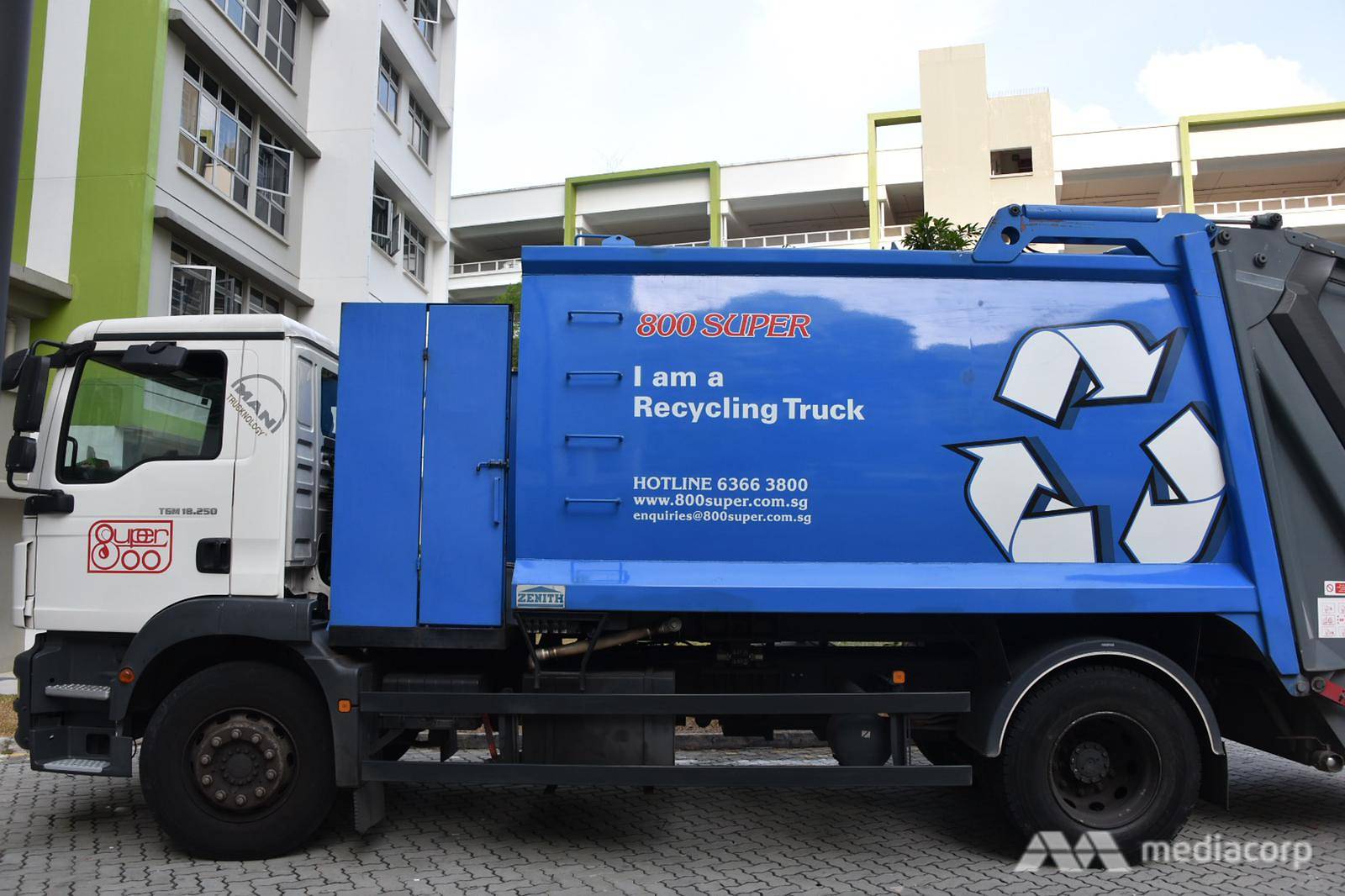SINGAPORE: Singapore plans to reduce the waste sent to its only landfill by 30 per cent each day, under the country’s first Zero Waste Master Plan.
The Pulau Semakau landfill is the world’s first offshore landfill created entirely from sea space. The landfill was opened in 1999 and is expected to run out of space by 2035.
Reducing the waste being dumped at Semakau by 30 per cent by the year 2030 will extend the landfill’s lifespan beyond 2035, said Senior Minister of State for the Ministry of Environment and Water Resources Amy Khor on Friday (Aug 30).
READ: ‘Cannot sell … so they burn’: What’s next in the uncertain future for plastic waste in Singapore?
According to the ministry, the amount of waste disposed of in Singapore has increased seven-fold over the last 40 years.
“There is limited land for building new incineration plants or landfills in Singapore. Further, the incineration of waste, while efficient and avoids the problems of land and marine contamination, generates carbon emissions, which contribute to climate change,” it said.
Waste being dumped at Tuas South Incineration Plant. (Photo: Nisha Karyn)
Dr Khor said Singapore needs to move towards a sustainable economy “that is good for both businesses and the environment”.
“We can no longer afford to operate ‘business-as-usual’,” she added.
READ: Elaborate mooncake packaging difficult to recycle and damaging to the environment, experts say
As part of the master plan, Dr Khor also outlined a new regulatory framework as part of the Resource Sustainability Bill targeting electronic waste, packaging waste and food waste. The Bill is due for a second reading in Parliament next month.
ELECTRONICS PRODUCERS TO BE RESPONSIBLE FOR E-WASTE
An extended producer responsibility framework for e-waste will be launched by 2021, said Mr Lee Wei Yang, deputy director of the ministry’s environmental policy division.
This will include items like batteries, phones, computers, lamps, large appliances and solar panels, covering about 90 per cent of consumer e-waste in Singapore.
The framework will ensure that producers are responsible for the collection and recycling of electronic products, said Mr Lee.
READ: Most people do not know what to do with e-waste; only a fraction recycle: NEA study
Producers of consumer electronic products must join a producer responsibility scheme, and producers of non-consumer electronic products will be required to provide free take-back services for all end-of-life equipment upon request, he added.
Retailers will also be required to provide free take-back services upon delivery of new products, and large retailers with floor space above 300 sq m must provide in-store collection points, which is already common today, noted Mr Lee.
Incinerated ash being tipped into Semakau landfill. (Photo: Nisha Karyn)
CLOSING THE PACKAGING LOOP
A similar extended producer responsibility framework for packaging waste will also be launched by 2025, said Mr Lee.
He noted that the voluntary Singapore Packaging Agreement has reduced packaging waste by 54,000 tonnes and saved S$130 million in packaging material costs since its inception in 2007.
From 2021, it will also be mandatory for large food waste generators to segregate and treat their food waste.
Developers of new large commercial and industrial spaces must allocate and set aside space for on-site food waste treatment systems. And from 2024, existing spaces will have to do the same.
READ: What will it take for Singapore to give up plastic?
The Resource Sustainability Bill is a distinct shift in Singapore’s approach towards resource management, said Dr Khor.
The regulatory framework also sends an “economic signal” to producers to take into account their impact on the environment, she added.
NEW LABELS FOR RECYCLING BINS
New labels for the blue recycling bins placed around Singapore have also been launched in a bid to reduce contamination of recyclables.
Recycling bins with the old (left) and new label. (Photo: Darius Boey)
Singapore’s blue recycling bins get new labels to remind users to keep recyclables clean and free from food or liquid waste. (Photo: Darius Boey)
The new labels aim to make it clearer what can and cannot be deposited in the bins. The current labels will be replaced with the new ones by mid-2020.
All recycling trucks from the public waste collectors will also have new identical livery to help the public identify recycling trucks and differentiate them from waste collection vehicles, said the ministry.
Commentary: Recycling makes you feel less guilty but doesn’t change how huge our plastic problem is

800 Super’s blue recycling truck. (Photo: Darius Boey)
Dr Khor said a citizen’s workgroup will be launched next month to focus on other ways to improve household recycling and reduce contamination in the blue recycling bins.
“Our pioneer generation worked hard to leave us with the clean and liveable Singapore that we enjoy today,” she said.
“It is now our turn to take action together to ensure that our children and grandchildren will inherit the shining jewel that is Singapore.”
WATCH: What happens to our waste




